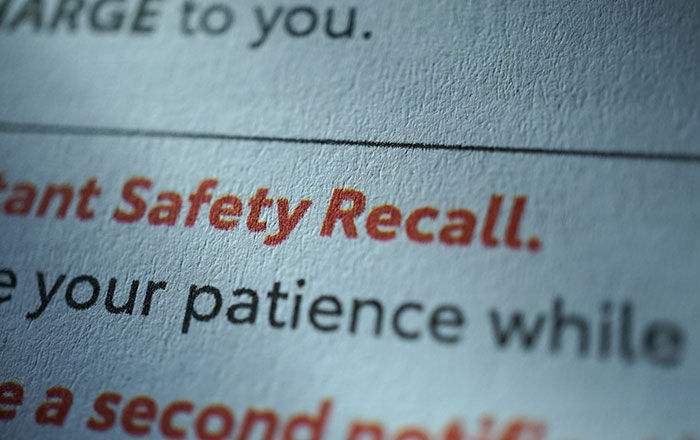South Carolina Product Liability Lawyer
The law of product liability is the area of personal injury law that deals with the liability of the manufacturer, wholesaler, or retailer of a product for injuries resulting from dangerous and defective products. Products subject to the law can include:
- Pharmaceuticals
- Appliances
- Vehicles
- Medical devices
- Medical implants
- Blood
- Tobacco
- Commercial jets
Today, almost anyone injured by a “defective” product (defined as a product that is unreasonably dangerous for its intended use) can bring an action for damages against any party in the distributive chain of the product, whether that is the manufacturer, wholesaler, retailer, or even the maker of a component part.
Theories Upon Which Suit Can Be Brought
Product liability claims can be brought under a number of different theories, including:
- Design Defects: With a design defect, liability arises from a mistake in the design of a product, which makes the product dangerous when used as intended or for another reasonably foreseeable purpose.
- Manufacturing Defect: With a manufacturing defect, liability arises from a defect in the manufacturing process.
- Marketing Defect: A marketing defect involves such issues as inadequate warning labels or instructions.
There are also a number of different legal theories upon which an injured party can bring an action in product liability law due to a dangerous or defective product. These theories include:
- Negligence: In a negligence action, the plaintiff must demonstrate that the parties responsible for placing the product into commerce had a duty to provide goods fit for their foreseeable uses; they would have detected the defect had they exercised reasonable care in the design, manufacture, or inspection process; they failed to meet their obligations and that the plaintiff was injured by the product as a result.
- Breach of Implied and Express Warranties: Under the theory of breach of express warranty, the plaintiff will have to show a violation of the actual written warranty associated with a product. Under theory of breach of implied warranty, the plaintiff will have to show that although there is no express warranty or the defect alleged is not covered by the express warranty, the defect in the product rendered it unfit for the purpose for which it was intended.
- Strict Liability: Under a strict liability standard, the plaintiff need only establish that the product is defective, there is no need to show fault of a party in the chain of distribution.
Types of Product Liabilities
Labeling
As of October 6, 2008, the Consumer Product Safety Commission (CPSC) has imposed some new rules regarding the labeling requirements for toy and game advertising. Among these rules are specifications for prominent placement of warnings. One such change requires the placement of a warning on a web page near the top of the advertisement, where it will be seen without having to scroll down below the visibility of the first screen. Catalog ads and packaging will also be required to make warnings more prominent.
Misrepresentation
Manufacturers, distributors, and sellers are all required to accurately represent products they produce, advertise, or sell. Despite the lengthy history of government efforts to prevent misrepresentation of products, people find ways around the existing laws either intentionally, negligently, or by ignorance, and manage to get defective or dangerous products to market.
When a product is manufactured outside of the United States for a U.S. registered corporation, that corporation is responsible for the quality and safety of the product. These products must meet the same standards as those manufactured in this country.
Warranty
Warranty liability is extended to the consumer (person or business) that purchases a product or service. Warranties are an attempt to shift liability onto a wrongdoer in the event damage is caused by a product or service. Warranties often follow the product during the period of time covered, but sometimes the transfer of that product to a secondary consumer voids the warranty.
Negligence
Negligent product liability occurs when a party responsible for producing or delivering a product has caused it to be a dangerous or defective product, resulting in loss or injury to the consumer. Defective product injuries can sometimes even be catastrophic injuries, which arise from defective consumer products. Injuries such as these can happen when a company is negligent in its manufacturing or when they don’t provide adequate warnings.
Laws that allow comparative negligence allow allocation of partial liability to all parties according to their contribution to the damage. Joint liability ensures that if one party is unable to pay, all other parties will be held responsible for the full amount of damages. This area of personal injury law can be quite complex. This is where product liability attorneys come in, they can help you navigate the legal aspects of your case and help seek justice for your injuries.
Product liability injuries can happen anywhere and from a wide number of poorly manufactured or inadequately marked products. Product manufacturers have a responsibility to ensure their products are safe for consumers, but sometimes this doe snot happen. If you have been injured or made ill by a product, contact an experienced South Carolina product liability lawyer at McWhirter, Bellinger & Associates, P.A., in South Carolina for an initial consultation about your product liability lawsuit.
With offices in Aiken, Camden, Columbia, Lexington, Newberry, Orangeburg, and Sumter, South Carolina, our personal injury lawyers understand product liability claims and are ready to serve you.
For immediate help, call our product liability attorneys today at 888-353-5513.















